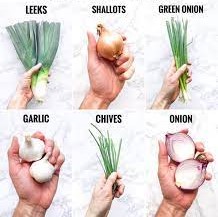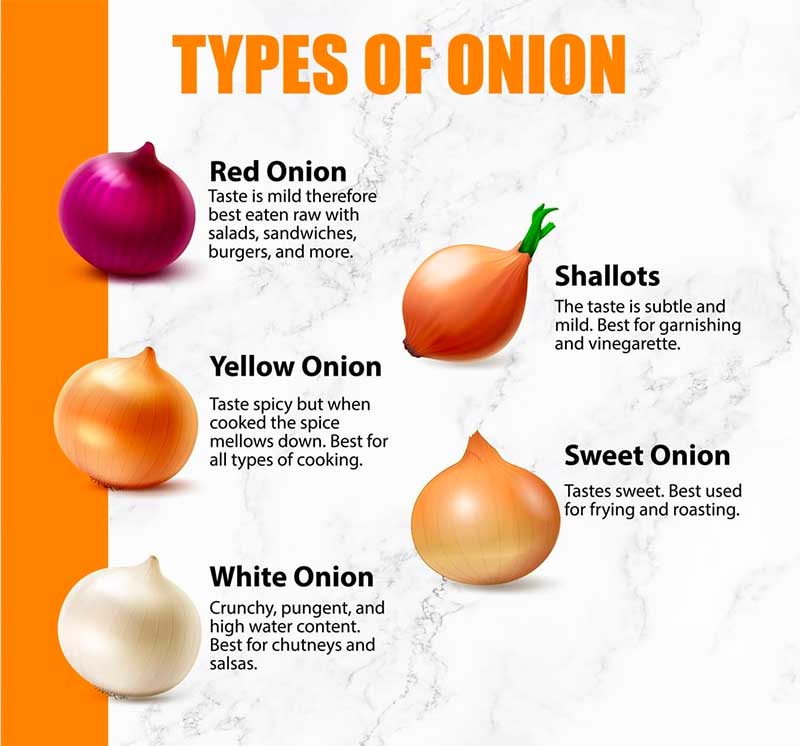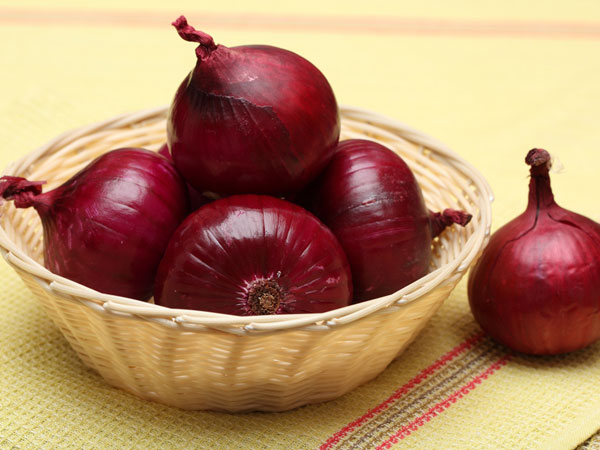Onions are a quintessential part of almost any recipe. Their big flavour is the starting point for dishes like soups, casseroles or sauces.
But beyond the flavour profile, onions also have impressive nutrition facts. They are:
- high in vitamin C
- a good source of dietary fiber and folic acid
- they contain calcium, iron and some protein
- rich in quercetin, an antioxidant compound that may reduce the risk of heart disease, cancer and other age-related illnesses.
Whether you like red, white or yellow onions, they are worth adding to your weekly grocery list.
Health benefits of eating onions
The most notable compound in onions is the quercetin, a type of antioxidant that helps fight inflammatory damage in the body. Since onions are one of the most abundant sources of quercetin, they have been studied for their potential role in fighting heart disease, cancer and cognitive decline.
Quercetin is known for fighting inflammation, and therefore has been studied for its potential role in treating heart disease. Quercetin supplementation has been shown to reduce blood pressure markers in those with Type 2 Diabetes, and a study in the British Journal of Nutrition concluded that supplementing with quercetin from onion skin extract lowers blood pressure in patients with hypertension.

What’s more, eating more onions has been linked to a reduction in certain types of cancer. One study found that regularly consuming allium vegetables, including garlic, onion, leeks, chives and scallions, coincided with lower incidences of colorectal cancer. A second case control study showed a link between garlic consumption and the reduced risk of breast cancer.
In addition, onions contain flavonoids, otherwise known as plant compounds, that are good for your health. A 2020 study in the American Journal of Clinical Nutrition, found that a diet rich in flavonoids may reduce the risk of developing Alzheimer’s disease and other types of dementia.
Onions are also an excellent source of vitamin C, which is most known for its role in immune health. But it also plays a role in wound healing and collagen production, which keeps skin and joints healthy. Plus, onions contain prebiotic fiber, which feeds the healthy microbes in the gut and contributes to overall digestive health.
 What’s the difference between white, red and yellow onions?
What’s the difference between white, red and yellow onions?
White and yellow onions are practically identical in terms of nutrition, but red onions contain anthocyanin that give them their rich color. Anthocyanins are a type of antioxidant that have been linked to reducing the risk of chronic diseases, like heart disease and cancer.
Are there drawbacks to eating onions?
There aren’t any nutritional downsides to eating onions, but they may cause digestive issues for people who suffer from irritable bowel syndrome (IBS) or gastroesophageal reflux (GERD). According to Monash University, onions are high in FODMAPs, a group of carbohydrates that triggers IBS symptoms.
Cooking with onions is not well tolerated among IBS sufferers, but there are ways to add onion flavour to foods. The fructans (the carbohydrate in onions) is not soluble in oil, so you can sauté an onion in oil and pull it out before finishing the dish. This imparts onion flavor into the oil without any unwanted digestive side effects.

Unfortunately, those who suffer from reflux also need to avoid onions, since they trigger an increase in stomach acid. There’s a chance that reflux sufferers may be able to tolerate onion infused oil, but reflux triggers are very individualized, so it’s different for every person.
What’s healthier: Cooked onion or raw onion?
A small amount of raw onions adds a powerful punch of flavour to any dish, but is it better to eat onions raw or cooked? The answer is: whichever way you prefer since most preparations of onions are a healthy addition to a meal.
Raw onions do actually contain higher levels of organosulfur compounds or the chemicals that make your eyes water when you cut them. These sulfur molecules have anticancer effects, and they are slightly lower in cooked onions. That said, baked and sautéed onions contain slightly higher levels of quercetin, the antioxidant that is linked to many health benefits.
At the end of the day, both raw and cooked onions are a nutritious addition to your food. So choose an onion type based on preference.


